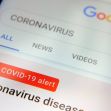Striving to protect both its workers and the public they serve, the City of Los Angeles issued a COVID-19 vaccine mandate for all its 100,000 employees in October 2021. Not everyone was happy about the mandate, and one non-profit organization called ”Firefighters4Freedom” (F4F) sued the City, arguing that getting vaccinated should be a matter of personal choice. They lost in the trial court, but on June 22, a California appellate court ruled that their suit can be reinstated because the trial judge erred when he granted the City’s demurrer to the Firefighter’s complaint. The judge should not have ruled for the City after merely taking judicial notice of L.A.’s scientific arguments.
The unpublished 2-1 opinion written by Associate Justice John L. Segal of Division Seven of California’s Second District Court of Appeal begins with a quote by astrophysicist Neil Degrasse Tyson. “The good thing about science,” he said, “is that it’s true whether or not you believe in it.” But he then linked the quote to California’s pleading rules, concluding that “scientific proof cannot be determined on demurrer.” Los Angeles County Superior Judge Michael P. Linfield erred when he took judicial notice of the scientific evidence that Los Angeles submitted about COVID vaccines because their safety and efficacy are disputed.
The District Court opinion thus reversed the order sustaining the demurrer to two of the Firefighters’ causes of action for declaratory relief and dismissed their third due to an agreement with the parties.
The City’s vaccine rule required all new hires and existing employees to be vaccinated. The City Council and the Mayor cited several reasons for its action. For example, the California Department of Public Health reported that unvaccinated Californians were 2.6 times more likely to get and be hospitalized and 2.9 times more likely to die from the disease than those who had been vaccinated. The City’s mandate also allowed those with religious or medical reasons to apply for exemptions.
Even before the mandate went into effect, F4F sued Los Angeles for declaratory and injunctive relief, arguing it had no authority to adopt the mandate which violated both their right of privacy granted by the California Constitution and their rights to due process, when it discontinued their pay without a hearing. They also sought an injunction that would prohibit the City from enforcing the mandate. They provided several scientific studies that disclaimed the vaccine’s public health benefits.
Los Angeles demurred to all F4F’s causes of action. It claimed the mandate was “a valid exercise” of its police power and submitted scientific evidence that vaccinations were “the single most effective strategy for preventing severe disease, hospitalization and death.” To support their claims, they requested judicial notice for 11 documents. Judicial notice is an evidentiary rule that allows facts to be introduced because they are so well known that they cannot reasonably be doubted. The majority of the submitted articles were from the Centers for Disease Control and Prevention (CDC).
F4F opposed the request for judicial notice, but the trial court sustained the City’s demurrer to all of F4Fs requests and dismissed the firefighter’s case on March 14, 2021.
In his opinion, Justice Segal applied the law that governs judicial notice by quoting a section of the Evidence Code that states, “Judicial notice may not be taken of any matter unless authorized or required by law” because it is “reasonably beyond dispute.” He then found that F4F’s evidence “reflected reasonable disputes about factual statements” that Los Angeles submitted. Some challenged the efficacy of the vaccines, especially those that targeted COVID’s Omicron variant. Other evidence provided by F4F challenged the vaccine’s safety and pointed out side effects that could cause health problems. The opinion also pointed out that information about vaccines continues to “evolve” and is giving “rise to an ever-changing picture.”
The City cited precedent to support the propriety of the trial court’s judicial notice ruling and noted that courts generally uphold ordinances enacted under a city’s police powers if they are “reasonably related to promoting public health, safety, comfort and welfare.”
But this was not persuasive to the appellate court. In conclusion, Segal wrote “Firefighters4Freedom’s allegations, even if improbable absent judicially noticed facts irrefutably contradicting them,” stated a cause of action under the police powers clause of the California Constitution.” He said that the trial court erred when it sustained the demurrer to the F4F cause of action that was based on invasion of privacy, which was valid because they met the U.S. Supreme Court’s three-part test. That test demanded that there be a legally protected privacy interest, a reasonable expectation of privacy, and conduct by the defendant that constituted a serious invasion of privacy.
The firefighters, the court found, do have a legally protected interest in “their bodily integrity.” A demurrer was not the appropriate way to determine whether this interest exists. In addition, Segal wrote, “such presumptions are contrary to Supreme Court authority addressing legislation related to healthcare.”
Dissenting and concurring Judge Kristin S. Escalante agreed that the trial court erred when it took judicial notice of the facts about the vaccine. But she did not believe the causes of action could be resolved by demurrer. Rather, it was the “truth” of disputed factual matters that were improper since they caused the court to act with “imperfect information.”
The City of Los Angeles ended its public health emergency order, which had lasted for 1,122 days by March 31, 2023. The Court’s opinion did not discuss the validity of the Los Angeles vaccine mandate which is now moot. But the trial court was directed to vacate its order that sustained the demurrer. Should the firefighters elect to continue their suit, the decision about judicial notice regarding scientific evidence may be important if there is another pandemic. But let us hope we will never need to find out.






